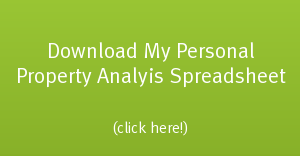
Remember that high school movie where the homely girl was transformed into the beautiful prom queen when she removed her glasses and put on some makeup?
(Yeah… me neither. I was watching Die Hard.)
The point is this: Human nature loves to see transformations. We love to see the before and after and marvel at what it must have taken to get from A to B. Just tune into any episode on HGTV to see what I’m talking about.
For this reason, people love to buy fixer-uppers. But is this always a good idea when investing in real estate? Should you invest in a fixer-upper when getting into rental properties? Let’s find out.
What Is a Fixer-Upper?
First, let’s all get on the same page as to what I’m even talking about when I use the term “fixer-upper.”
A fixer upper is a home that needs either minor or significant rehabilitation before it can be used for its intended purpose. This could refer to both a “house flip” or a “rental property,” but I’m mostly going to focus on the rental side. The repairs a fixer-upper can need range from light cosmetic work, such as fresh paint or new carpet, to more intensive renovations, such as a new roof, foundation, plumbing, or electrical.
I actually love investing in fixer-uppers. In fact, I’ve never purchased a property that didn’t require some level of rehab to get it to a rentable condition.
For me, it has just made sense.
On the 44th episode of the BiggerPockets Podcast, Michael Woodward tells a story about taking his kids to look at potential houses to buy. Michael mentions that when they walk into a house with an absolutely terrible odor, he turns and asks his kids, “Boys, what does that smell like?” In unison, they shout, “Money!”
What this cute story represents is often the truth with fixer-uppers: There can be money in the mending, riches in the restoration, freedom in the fixing!
At the same time, fixer-uppers do carry a large degree of risk and can turn your investment into a money pit. So let’s examine both the pros and cons of buying a fixer-upper.
(Click to read on BiggerPockets…)
P.S. looking for hard money loans in California? Be sure to check out my friends over at northcoastfinancialinc.com. They have very competitive rates, can fund within a week and specialize in fix and flip loans and other hard money loans.

 If this is your first time here at Real Estate In Your Twenties.com - welcome!
If this is your first time here at Real Estate In Your Twenties.com - welcome! 





